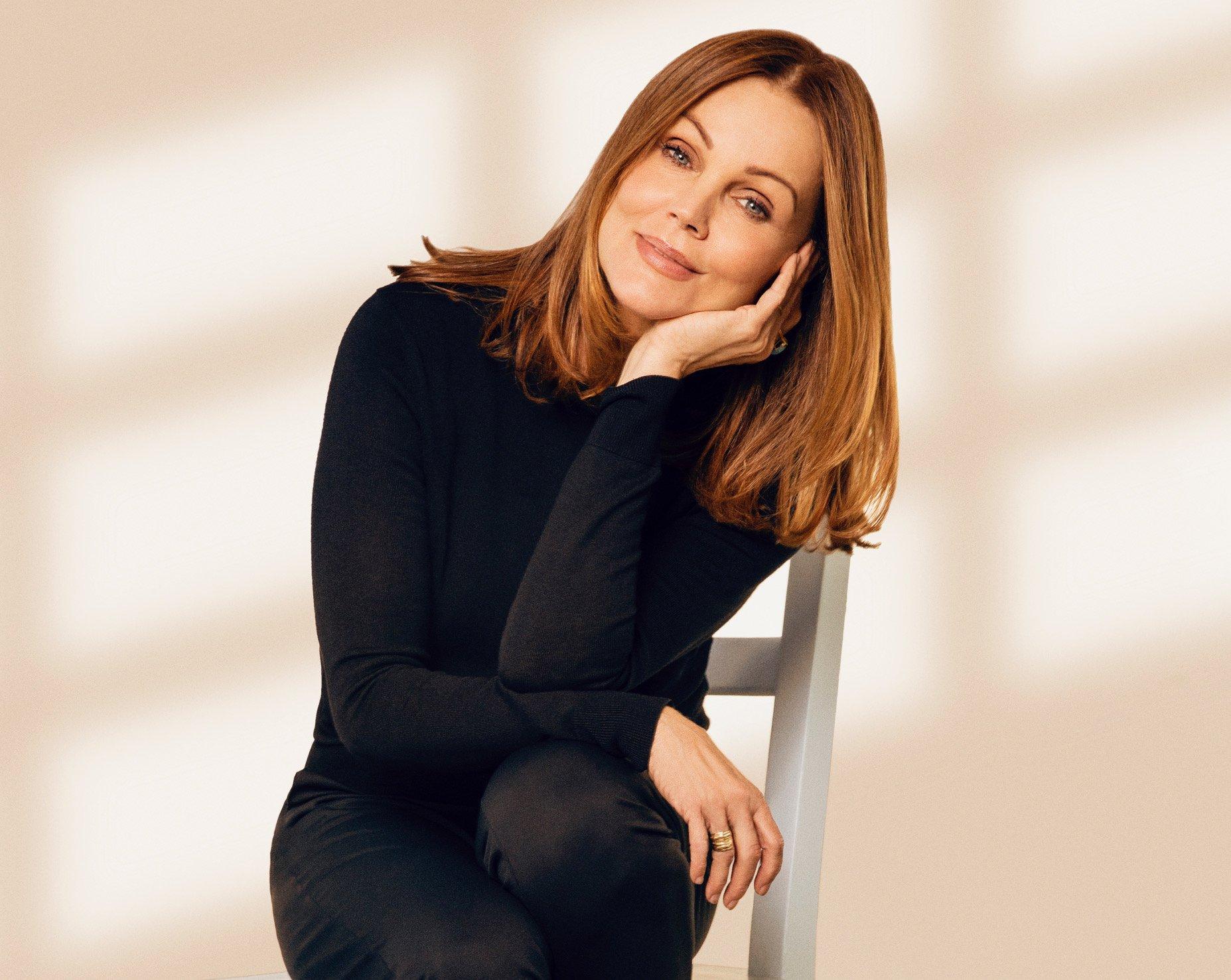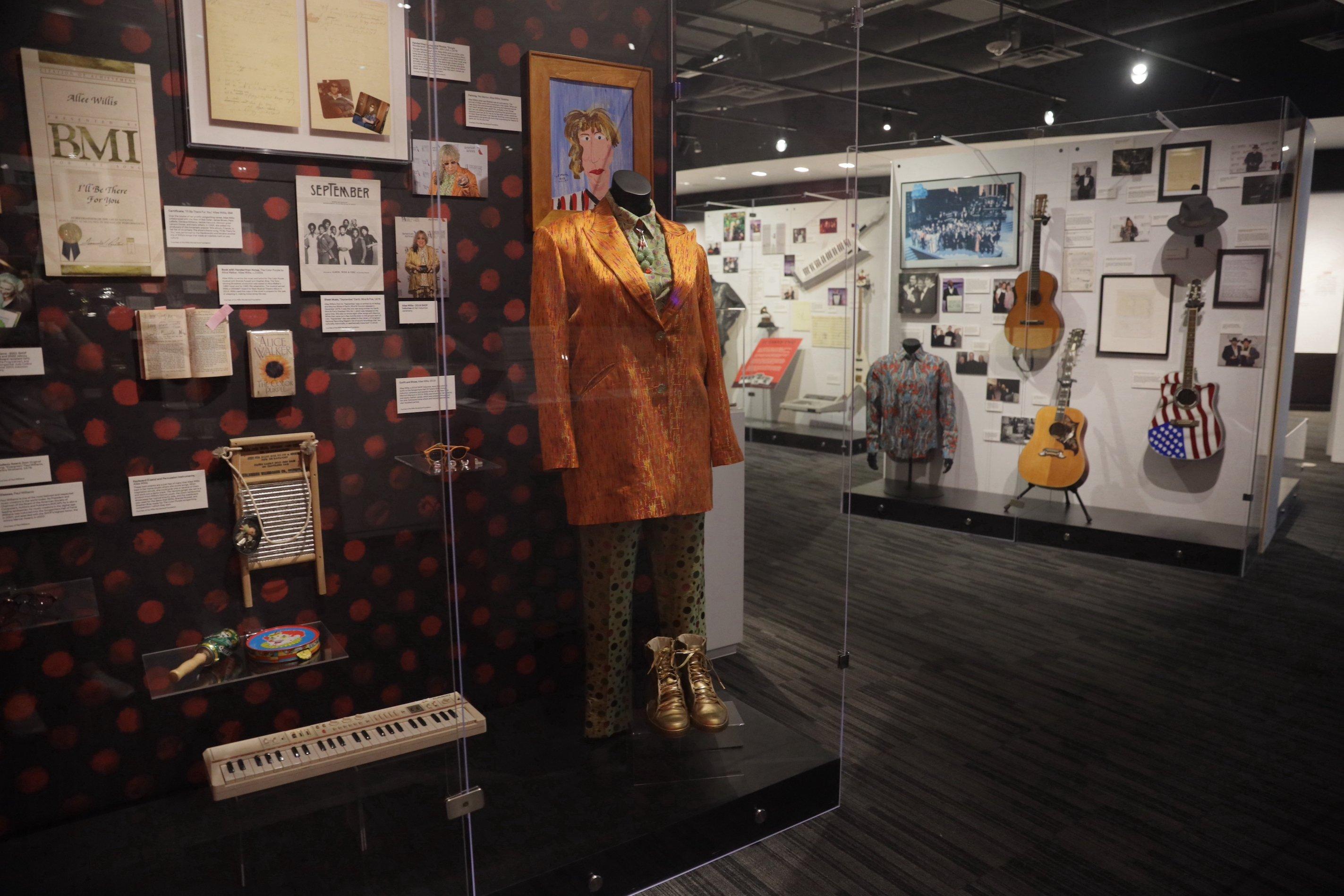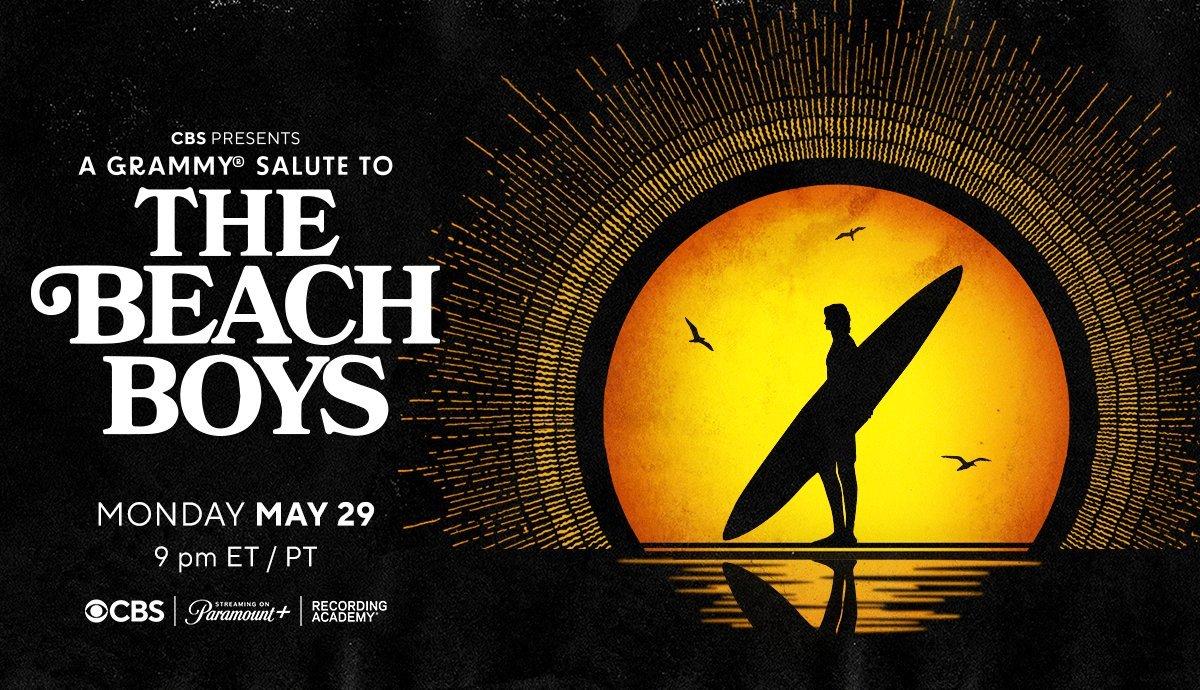Living Legends is a series that spotlights icons in music still going strong today. This week, GRAMMY.com spoke with Belinda Carlisle, singer of the groundbreaking rock group the Go-Go's and a solo act. Carlisle is currently on tour, supporting a new EP, Kismet.
Belinda Carlisle first fell in love with music when she was about 10 years old. Her family lived in the L.A area, and Carlisle would wile away the hours listening to records by the Beach Boys, the Animals, and Cat Stevens. Fast forward four years and Carlisle was a full-blown angsty adolescent, prone to skipping school and seeing what trouble she and her friends could get into. Though she managed to graduate high school, she bounced from job to job after, ultimately (and fortunately) leaving home around 19 to pursue music, thanks in part to a few nudges from Lorna Doom, bassist for foundational punk band the Germs, who she’d met in high school.
Carlisle’s stint in the Germs was quick and dirty thanks to a bad case of mono, but she bounced back with aplomb, teaming up with a few friends, to form the group that would become the Go-Go’s. The group’s 1981 debut LP, Beauty And The Beat, hit No. 1 on the Billboard charts — the first record by an all-female rock ‘n’ roll band to do so. Two more hit records followed, with singles like "Our Lips Are Sealed," "We Got The Beat," and "Head Over Heels" helping The Go-Go’s cement their place in the pantheon of popular music.
The Go-Go’s broke up in 1985 and Carlisle set out on a solo career. She snatched early success with singles like "Mad About You" and "In My Wildest Dreams,"but really hit it big with her second solo effort, 1987’s Heaven On Earth. That album's power pop production, boldly infectious title track and the Diane Warren-penned "I Get Weak" earned Carlisle a GRAMMY nomination. (The Go-Go’s also got one, for Best New Artist in 1982.)
Carlisle’s relationship with music has been on an interesting trajectory ever since. Her four pop records were tepidly received in the States and her two most recent solo full-lengths — 2007’s Voila and 2017’s Wilder Shoes — contained only French standards and Sikh chants, respectively.
But on her new EP, Kismet, Carlisle is re-entering the pop space. A collaboration of sorts with Diane Warren, who penned all of the record’s tracks, Kismet is joyful and modern, with lead single "Big, Big Love" landing atop the charts for the UK’s Radio 2. It’s a welcome surprise for Carlisle, who’s currently out on the road doing live dates, including stops in Las Vegas, Los Angeles, and New York.
GRAMMY.com spoke to Carlisle about her new record, her thoughts on the future of the Go-Gos, and why she thinks people need pop music now more than ever.
It’s been reported that this record is called Kismet in part because it came out of a chance encounter your son had with Diane Warren at a coffee shop. What really made you want to get back into the studio and release this record?
The songs. It’s as simple as that. I wasn't really planning to go back into the studio before, because I didn't really think that it would happen. Great songs usually go to artists that are already in the charts or younger artists, you know? And when I got the call, I was "Do I really want to do this?"
It's a big commitment. But I felt like I needed to give it a chance, at least, and when I heard the songs, that's really what got me excited to do another English-language pop project in the vein of my older albums.
And it’s doing well! You’ve got the No. 1 single on the Radio 2 charts!
It's totally unexpected. It's so weird.
I had no expectations but I knew it was a really good project, and really good solid pop songs. My attitude has always been, I had a blast doing it, I know it's good work, the fans will love it, and we'll see what happens. And I've been totally surprised that, in countries around the world including the U.S., it has debuted in the top five.
Tell us about your relationship with Diane Warren. Do you think a song like "Big Big Love" would work for anyone, or do you two just really just get each other?
Diane and I clicked when we first met. Through the years, we’ve run into each other on occasion, but when this whole thing started happening and I went to the studio to start working with her, it was like… you know how with certain friends you can just pick up where you left off and there's no feeling uncomfortable, no weirdness, and no getting to know each other? It’s like that.
I have a really good sense of myself. She has a really good sense of my voice. Weirdly enough, I loved every song that she presented to me. I mean, I'm normally very fussy. I don't just want to sing anything for the sake of doing it.I have to absolutely love it both lyrically and melodically, so it's tough.
How was that sense of self that you have changed over the years? Do you see yourself differently now than you did in ‘87? Or even in ‘97?
I was really insecure in the mid-‘80s when I embarked on my solo career. I was really lucky to work with [Producer] Rick Nowels on Heaven On Earth, because I was kind of like his muse and he took me under his wing. And it just so happened that I loved his songwriting and Ellen Shipley’s and Diane’s, so I was lucky in that way but I still was insecure about my voice and insecure in a lot of different ways.
I think as I've gotten older — and especially after I got sober like 18 years ago — it’s gotten a bit better. I thought, Okay, this is really what I'm meant to be doing and obviously, I'm good at what I do. It may not be the best voice but it's distinctive. And I’ve been really working on my voice and not taking it for granted, too.
I just think overall now I have confidence that I didn't have when I was younger, and even when I was younger and successful.
I wanted to ask about the Go-Go’s being inducted into the Rock and Roll Hall of Fame a few years ago. You were quoted after the fact saying that you didn’t think the experience would be that amazing but that, in reality, it really was. Tell me what you meant, and why it meant so much to you all in that moment.
Of course, it's great to get recognition. What we did was amazing. There's no doubt about that. I don't really care about awards, but it's the whole thing about how when you actually get an award, it's pretty cool. It feels really good.
That night was a great way to cement the legacy of the band and the hard work that we put into it for 40-odd years. I don't think I've ever felt such an enormous wave of love for the band. It really kind of took me aback, actually. I knew that people liked us, but this was like this amazing, energetic sort of wave. And of course you’re performing in front of your peers and people like Paul McCartney, which was, in the end, even more amazing than I expected.
You've known Diane Warren for almost 40 years. You've known the women in the Go-Go's for longer than that? How have your relationships changed in that time?
There are very complicated dynamics in a band full of five women that have been together for that long, for sure. But I think that when we all were sitting at the Sundance festival, when the documentary [about The Go-Go’s] was being premiered… Some people didn't look up to the band as ground breakers or whatever, but when we saw what we did on the big screen, it was like, wow, we did that.
When you see it kind of encapsulated in the story that was told really well and that captured the essence of the band, I think it made all of us have a new respect for each other. Maybe through the years, we might have taken each other for granted, but that changed seeing that documentary.
It's family. It's not even friends or colleagues. We know each other like the back of our hand. We might not see each other for years and years but whenever we get back into the rehearsal studio, it’s like riding a bike. We pick up where you left off.
The same goes with Diane. You pick up where you left off, and not just work-wise but friendship wise. She's not a good friend, but she's still a friend and we just really gel. Even if she wasn't the greatest living songwriter at this moment, I would still probably have her as a friend because I like her a lot as a person.
**Let’s talk about your time coming up in the L.A. punk scene in the late ‘70s. It is sort of staggering to think all that was happening around the same time Laurel Canyon was still churning and Fleetwood Mac was releasing Rumours. Talk to me about what it was like to be with the Germs and in that scene at that time. Sometimes, the actual group of people who start something like that can be very small, but in the end it turns out to be so significant.**
In retrospect, everything around the world was different. London was angry and political and New York was sort of dark and junky. Detroit was hardcore working class. But in L.A. and in Southern California, there wasn't a whole lot to be angry about really in the late ‘70s.
It was kind of a sparkle. I don't know how to put it into words, because it was an energy that was very much about art. That was a big part of the punk scene. It was kind of sparkly, somehow, and that was probably because of the magic that California had back then.
I was one of the original punks. I met Darby [Crash] and Pat [Smear, of the Germs] trying to get Freddie Mercury's autograph at the Beverly Hilton back in 1977. That was at the very beginning of the punk scene and the Germs did the very first punk show or one of the very first punk shows in L.A. at a horrifying theater on Holloway Drive in West Hollywood. It's not there anymore but we knew that it was something special.
It exploded really fast. It was 50 kids then all of a sudden it was 500 kids and then 5,000 kids. There were beach punks, Hollywood punks, Valley punks… There was an energy in the air. Everything was so exciting. I lived in this punk rock crash pad called Disgraceland that’s kind of infamous — but I remember saying, "It's so lucky that we can realize this in the moment and know that we're part of something that is really special." Those kinds of movements don't come along very often and we were there at the very beginning. It was an incredible, incredible experience.
And to have the fortitude and foresight to say, "I don't play an instrument, but I'm going to figure it out and we're going to put something together." I mean, the Go-Go’s really happened pretty fast, from inception to No. 1.
Well, we were kids and, of course, it was the American dream where anything is possible. We were prime examples of that. Everybody was in a band, really, because the scene was so small, but not everybody was that good. We didn't have to be good.
That was part of the beauty of the punk scene is that we didn't really have to be musicians. We could learn as we went along, and that's what we did. We were lucky to have gotten a lot of guitar lessons and vocal lessons along the way from other bands, too.
Are you still in touch with Pat Smear?
Yes, because Pat and I were in our first band together so when [Smear’s current band] the Foo Fighters got into inducted into the Rock Hall, the Go-Go’s were the same year, so we had a conversation on the phone, like, "Isn't it weird to go from the Germs to the Rock and Roll Hall of Fame?" It was very sweet and funny.
How do you define your musical style at this point? If you had to say put Belinda Carlisle in a subsection of music, what would it be?
Sort of anthemic, melodic pop, I think. Maybe romantic pop songs with complicated melodies? There's a little bit of sadness in a lot of my songs and especially in my earlier catalog, but, really, I guess I would just say "good solid pop songs," which people may write off, but they're really important.
I just did a big tour in the UK that was sold out every night. In the UK, 20 years ago, I was doing little clubs where maybe 20 people would show up because I really had some serious issues going on, but now I’m doing these big shows? And so when I was doing this tour that was packed with people, I just realized that people need pop music. It brings joy to people. People can escape, and especially in this world right now, that’s really, really important.
Living Legends: David Johansen On The New York Dolls, Helping Found Punk & His New Martin Scorsese-Directed Documentary




